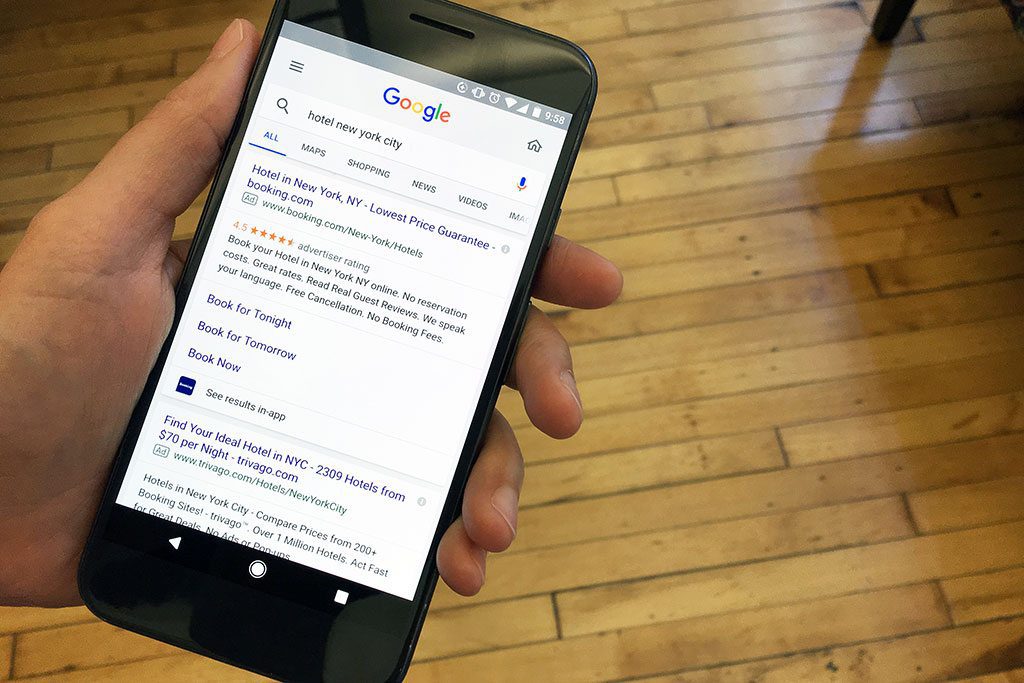Google Travel Is Worth $100 Billion — Even More Than Priceline

Skift Take
While some may disagree, we believe that Google is not becoming an online travel agency. It certainly could do so, but its travel business is already massive and highly profitable. We estimate it will generate around $14 billion in revenue in 2017, and will grow at over 20 percent per year for the foreseeable future.
There's no doubt that the Priceline Group is a juggernaut, but Skift Research calculates that Google's travel business could be worth as much as $100 billion — and that would make it larger than Priceline with its $90 billion market cap.
At $100 billion, Google's travel business contributes about 15 percent to Google's $650 billion market cap.
We'll first walk you through how we arrived at these estimates based on financial disclosures covering the first half of 2017, and then we'll also go into detail about full-year 2016.
Glenn Fogel, CEO of the Priceline Group, and Mark Okerstrom, CEO of Expedia Will Speak at Skift Global Forum in New York City This Month. Get Tickets Now
For the first six months of 2017, Priceline’s performance-advertising spend was up 23.5 percent compared with the year-earlier period. Expedia does not disclose quarterly ad spend specifically, but direct marketing costs increased 28 percent, and that would be a good approximation of its growth rate. This suggests that 2017 digital ad spend for Priceline is on pace for $4.3 billion, and Expedia for $2.9 billion.
Running through a comparable growth path for Airbnb; metasearch engines such as Kayak and Trivago, and suppliers, including hotels and airlines, 2017 travel spend on Google will likely jump 25 percent, generating close to $14 billion in revenue for Google. For context, Google revenue as a whole has grown 23 percent in constant currency during the first two quarters of the year.
Given a margin profile that is likely higher than Priceline's and digital ad spend growing more than 20 percent per year, the value of Google's travel b
